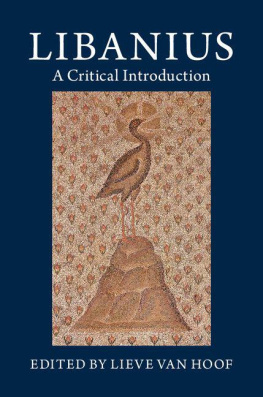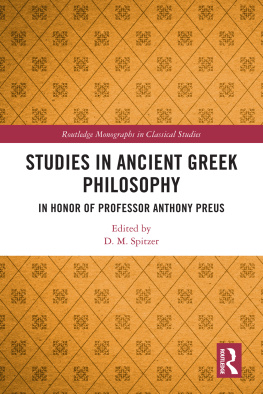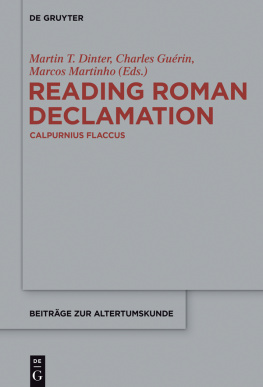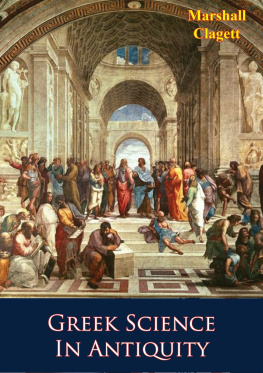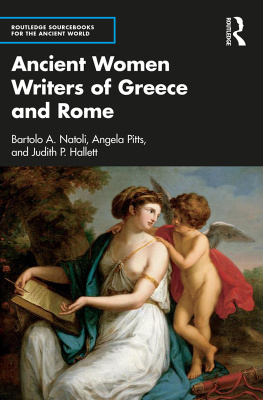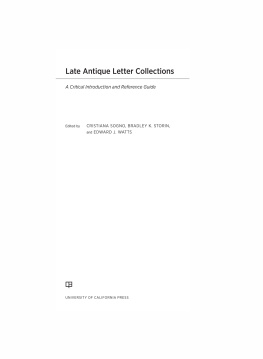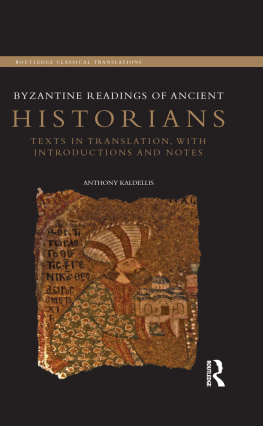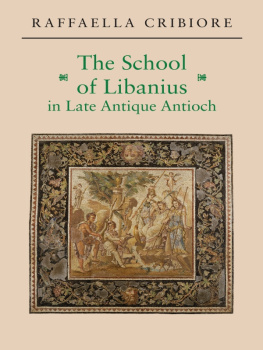Scott Bradbury is Professor of Classical Languages and Literatures at Smith College in Northampton, Massachusetts. He is the author of Selected Letters of Libanius from the Age of Constantius and Julian (2004), as well as articles on the emperor Julian and Libanius. In collaboration with David Moncur, he is currently preparing a translation of the later corpus of Libanius letters from the years 388393, also to appear in Translated Texts for Historians .
Bernadette Cabouret is Professor of Roman History at the University Jean Moulin Lyon 3 in France. She is a member of the research group Histoires et Sources des Mondes Antiques of the Maison de lOrient Mditerranen . After a PhD on Antiochs suburb Daphne and a research project on late antique Syrian elites, she published a French translation of ninety-eight Libanian letters under the title Lettres aux Hommes de son Temps (2000). Currently, she is translating and commenting on the Letters of Libanius at the head of an international research team. On the basis of Libanius and other textual sources, she also studies several aspects of the culture and society of the late Roman East.
Raffaella Cribiore is a Professor of Classics at New York University. She is a specialist in ancient education, oratory in Late Antiquity, and papyrology. She is the author of Writing, Teachers and Students in Graeco-Roman Egypt (1996) and Gymnastics of the Mind: Greek Education in Hellenistic and Roman Egypt (2001). She has also published two monographs on Libanius: The School of Libanius in Late Antique Antioch (2007) and Libanius the Sophist: Rhetoric, Reality and Religion in the Fourth Century (2013). At the moment, she is preparing the translation and commentary of twelve orations of Libanius.
Craig A. Gibson is the author of Libaniuss Progymnasmata: Model Exercises in Greek Prose Composition and Rhetoric (2008). He has published articles on Libanius hypotheses to Demosthenes orations, Libanius Progymnasmata , and other topics in ancient Greek, Roman and Byzantine rhetorical education. He is Professor of Classics and Collegiate Scholar at the University of Iowa, and is the current editor of Transactions of the American Philological Association .
Pierre-Louis Malosse ( 2013) was Professor of Greek Language and Literature at the University Paul Valry Montpellier 3 in France. Apart from numerous articles, his publications on Libanius include an edition of Oration 59 (2003), a translation of the pseudo-Libanian On Letter Form (2004) and a volume entitled Libanios: Le premier humaniste , which he edited together with Odile Lagacherie (2011). He was President of the THAT Association (Textes pour lHistoire de lAntiquit Tardive) and Coordinator of the Centre Libanios .
Heinz-Gnther Nesselrath is Professor of Classics at the Georg-August University of Gttingen, Germany. His interest in Libanius focuses on Libanius relations with his pupils and his predominantly Christian environment. In 2011, he was the main contributor to a new edition with introduction, German translation, notes and interpretative essays, of Libanius Oration 30 For the Temples entitled Fr Religionsfreiheit, Recht und Toleranz and in 2012, he published a short introductory monograph on Libanius under the title Libanios: Zeuge einer schwindenden Welt .
Robert J. Penella is Professor of Classics at Fordham University, New York. His most recent book is Man and the Word: The Orations of Himerius (2007). He is also the contributing editor of Rhetorical Exercises from Late Antiquity: A Translation of Choricius of Gazas Preliminary Talks and Declamations (Cambridge University Press, 2009). His current interests are ancient declamation and the School of Gaza, and he is working on a translation of Libanius declamations (38) on mythological subjects.

